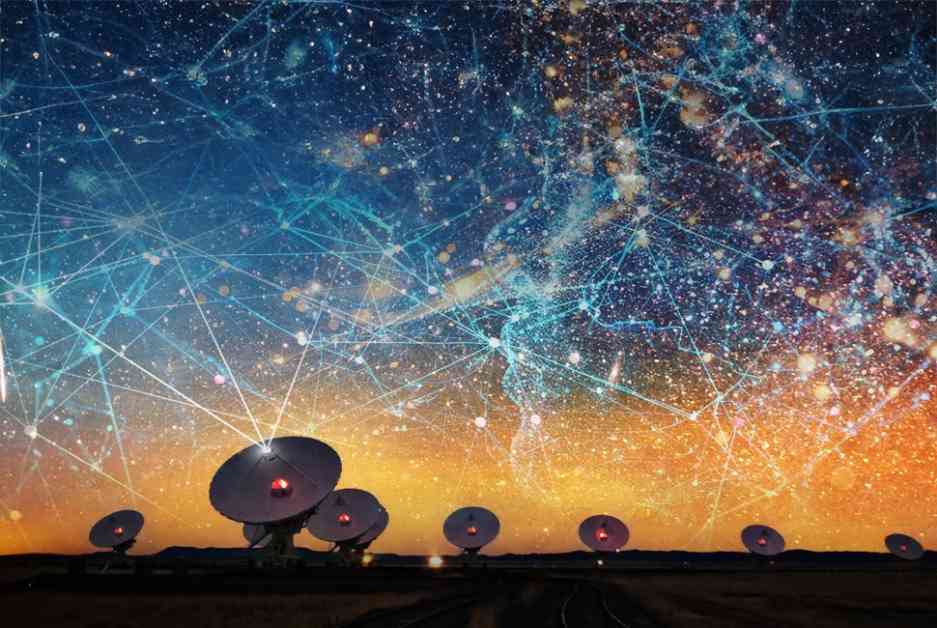Northwestern University has been chosen to lead a groundbreaking $20 million artificial intelligence (AI) research institute focused on revolutionizing astrophysics research and deep space exploration. This collaborative effort, funded jointly by the National Science Foundation (NSF) and the Simons Foundation, aims to develop and apply innovative AI tools to analyze vast amounts of astronomical data and accelerate discoveries in the field.
The newly established NSF-Simons AI Institute for the Sky (SkAI) will be spearheaded by Northwestern astrophysicist Vicky Kalogera, who will serve as the director of the institute. Working alongside Kalogera is Northwestern AI expert Aggelos Katsaggelos, who will play a key role as a co-principal investigator of the grant. Together, they will lead a diverse team of researchers in developing trustworthy AI tools tailored for astronomy research.
As the vast amount of data collected from upcoming sky surveys, such as the Legacy Survey of Space and Time (LSST) by the Vera C. Rubin Observatory, continues to grow, astronomers will increasingly rely on advanced AI tools to analyze and interpret this information efficiently. SkAI aims to address this need by developing cutting-edge AI solutions that will enhance the speed and accuracy of data processing in astrophysics research.
With a focus on multidisciplinary collaboration, the SkAI Institute will bring together experts from various fields to develop innovative AI tools that can unlock new insights into a wide range of astronomical phenomena. From studying stars and their transient events to exploring the mysteries of black holes and the dark sector of the universe, the institute’s research initiatives are poised to transform our understanding of the cosmos.
Northwestern University’s Provost Kathleen Hagerty expressed her excitement about the partnership, emphasizing the institution’s commitment to harnessing the power of data analytics and artificial intelligence. The collaborative nature of SkAI aligns with Northwestern’s ethos of interdisciplinary innovation, paving the way for impactful research that benefits both the local and global scientific communities.
### Advancing AI Research in Astronomy
The SkAI Institute at Northwestern University represents a major milestone in the field of AI-driven astrophysics research. With a team of 83 members from 25 partner organizations, including the University of Chicago, University of Illinois Urbana-Champaign, and National Center for Supercomputing Applications, the institute is poised to lead groundbreaking research at the intersection of astronomy and artificial intelligence.
By leveraging the expertise of researchers from diverse backgrounds, including astrophysics, foundational AI, education, ethics, software engineering, and the arts, the SkAI Institute aims to push the boundaries of AI research in astronomy. This collaborative effort will not only accelerate discoveries in the field but also position Northwestern University as a leader in AI-driven research initiatives.
### Transforming Data Analysis in Astrophysics
The upcoming launch of the Legacy Survey of Space and Time (LSST) by the Vera C. Rubin Observatory will usher in a new era of data-driven discoveries in astrophysics. The LSST is poised to generate vast amounts of data on the southern sky, providing researchers with unprecedented insights into the universe’s most profound mysteries, including dark matter, dark energy, galaxy formation, and stellar evolution.
To effectively analyze the wealth of data generated by projects like the LSST, advanced AI tools will be essential. The SkAI Institute aims to develop innovative solutions that enhance the speed and reliability of simulations, optimize instrument designs, and facilitate data processing in astrophysics research. By harnessing the power of AI, researchers will be able to unlock new discoveries and gain valuable insights into the complexities of the cosmos.
### Fostering Inclusive Research and Education
In addition to advancing AI research in astronomy, the SkAI Institute is committed to fostering an inclusive and diverse workforce in the STEM fields. Through the SkAI Satellite Network, a collaboration with 16 regional and national college partners, the institute aims to engage students from minority-serving institutions and EPSCoR institutions in AI and astronomy research.
By providing open-source codes, training workshops, and mentorship opportunities, the SkAI Institute seeks to empower students and faculty from underrepresented backgrounds to pursue careers in AI and astronomy. This initiative not only aims to lower barriers to access for aspiring researchers but also to cultivate a culture of diversity and inclusion within the scientific community.
In conclusion, the establishment of the NSF-Simons AI Institute for the Sky at Northwestern University marks a significant step forward in AI-driven astrophysics research. By bringing together experts from diverse fields, developing innovative AI tools, and fostering a culture of inclusivity, the SkAI Institute is poised to accelerate discoveries in astronomy and shape the future of AI research.











